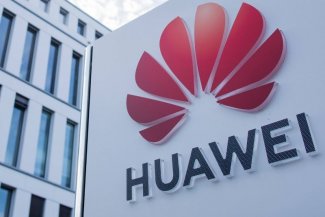Germany is open to Huawei’s participation in 5G

The Federal Network Agency published draft safety rules for 5G networks. The document does not provide for excluding any of the network solution suppliers from participating in 5G development in Germany. It does not include the provision which found in the guidelines concerning safety rules for these networks published by the federal government in March this year which stipulated that systems as part of this infrastructure could only originate from reliable suppliers. According to media reports, this fragment has been removed from the safety rules upon clear request from the Chancellor’s Office and the Ministry for Economic Affairs. In doing so, the federal government has removed its option to exclude from developing the 5G network in Germany system suppliers from the countries where they are obliged to closely co-operate with security agencies. Representatives of the US administration have been insisting on this exclusion for months. Instead of this, the government will impose the obligation on 5G network operators to sign declarations of reliability. If the agreement is breached, the government will be able to oblige the operators to remove the systems of the unreliable suppliers. Additionally, the government included in the regulations the stipulation that it will be required to use components originating from at least two different suppliers in the core of a 5G network, and that one firm may supply a maximum of two thirds of the equipment for central networks. The operators will themselves determine which part of their network is critical, and thus stricter security standards will apply with regard to it. The Federal Office for Information Security will supervise compliance with these standards and certify the devices to be used in the German 5G network.
According to the government’s plans, 99% of German clients will have access to 5G by 2025. Pursuant to the licence rules, operators must provide the Internet to this standard by 2022 (at a level of at least 100 Mbit/s) to 98% of households.
Commentary:
- The debate on the new security regulations concerning the 5G network is in fact a debate on the reliability of Huawei, the Chinese leader of the network development. The new 5G network security regulations provided in the published draft suggest that Germany will make serious concessions to China. The United States for months has been engaged in a campaign against Huawei, focusing on the related risks (see Appendix). Huawei for some time found itself in the centre of the US-Chinese trade war when the USA placed in on the list of firms whose supplies to US companies require approval from the Department of Trade.
- The solutions proposed as part of the 5G network rules in many cases will guarantee only illusory security or will be impossible to implement. The obligation to sign the declarations of reliability between operators and suppliers in many will not be enforceable, since it will be difficult to hold a supplier accountable for breaching it. Furthermore, the possible removal of an unreliable supplier will be very difficult, expensive and time-consuming, considering the need to replace the hardware and software in thousands of transmission stations. Similarly, it will be practically impossible for government institutions to ensure total network security. In contrast to earlier generations, 5G is a uniform system where software plays a great role. There is no physical division into the core of the system and its peripheral parts, although these elements can be differentiated virtually. Certification of 5G equipment and software alone is not a sufficient measure to guarantee security because spyware can be downloaded to the system during a system update. The legal solution imposing the obligation to use equipment from at least two companies in the core of the network does not guarantee security because 100% of the equipment for central networks can be supplied, for example, by two different Chinese companies (e.g. Huawei and ZTE). Another controversial solution offers operators the right to designate critical elements of the network. The operators, being private entities, aim to maximise their profits, so it is in their interest to set the security standards which will be the most profitable to them rather than the highest standards.
- The alleged involvement of the Chancellor’s Office and the German Ministry for Economic Affairs to ease the security regulations for the 5G network is most likely an effect of pressure from Germany’s largest corporations. Many of them view China as a strategic market, especially considering the expected economic crisis. Activity in China generates 16% of turnover for the top 25 companies listed on the German stock market (the highest share, 22%, of their turnover is generated by business in the USA, and 21% on the domestic market). China is especially important for the German automobile industry – it is the world’s largest automobile market and German manufacturers have a 24% share there. German companies are still intensely investing in research and development on the Chinese market, even though they are confronted there with a number of negative protectionist trends, for example, restricted access to the electric car market, which is treated as a promising sector, reduced competitiveness due to subsidies offered to Chinese firms and attempts to increase the influence which some agencies of the Communist Party of China have on the operation of foreign entities. German car manufacturers also want to gain access to Chinese technologies linked to control algorithms for autonomous vehicles. Beijing’s approach in the negotiations concerning access to the Chinese market directly depends on Germany’s stance in the US-China trade dispute.
- The exclusion of Chinese companies from 5G development in Germany has also met with resistance from telecommunication companies. These have invested 6.5 billion euros in buying the 5G transmission frequencies. Huawei is a key partner for them in developing this type of network. At present, it supplies around 45% of the 75,000 4G/LTE base stations in Germany, compared to an approximately 33% share in installations across Europe. It also supplies key technologies for Deutsche Telekom linked to providing cloud-based services. According to Deutsche Telekom’s internal analysis which has been leaked to the press, a ban on using Huawei equipment would have inflicted losses worth billions of euros and caused delays in implementing the 5G standard in Germany by as much as two years, since components of this brand would also have to be removed from the 4G/LTE base stations. Low mobile signal quality has been widely criticised in Germany. The country has poor ratings as regards 4G/LTE signal coverage – according to data from the Opensignal mobile analytics company, Germany, with 65.7% coverage, is in 70th position in the global ranking. Meanwhile, its main competitors are leading the ranking – South Korea is first on the list (97.5%), Japan is second (94.7%) and the United States is fifth (90.3%). For comparison, Poland, with 72.8% coverage, is in 50th position in the global ranking.
- The draft security rules for the 5G network are expected to be consulted with company and social and economic organisations now in order to come into force in late 2019/early 2020. It cannot be ruled out that MPs representing the government coalition will insist on a debate concerning the new regulations in the Bundestag, which might lead to stricter regulations being passed, though the exclusion of Chinese companies from building the 5G network in Germany can hardly be expected. Lowering the security standards for 5G has been harshly criticised by members of parliament, especially those in charge of foreign and security affairs. Norbert Röttgen, the Chairman of the Foreign Affairs Committee of the Bundestag, has insisted on a debate being held on the new network security rules. In turn, Nils Schmid, the SPD’s spokesman for foreign affairs, has concluded that Europe should develop its competences and industry in the key areas by itself. Katharina Dröge, the Green Party’s spokesperson for economic affairs has stated that the government must respond to parliament’s serious doubts regarding security linked to Huawei’s participation in the development of the 5G network in Germany. Some representatives of the German Ministry of Foreign Affairs, Ministry of Internal Affairs and the Federal Intelligence Service have been opposed to providing Chinese firms with access to 5G development in Germany. Achim Dercks, the deputy president of the German Chamber of Industry and Commerce, has made a statement in a similar tone. Organisations in charge of personal data protection have also expressed their concern.
- Germany’s decision to allow Huawei to take part in 5G development may adversely affect the attempts to coordinate the EU member states’ stance on this issue. This is the case because in practice Germany is in contradiction with the stance of the European Commission, which published a report presenting an assessment of the risks inherent in the construction of the 5G infrastructure on 9 October this year. The European Commission concluded in its network security recommendations that the degree of suppliers’ dependence on other countries and the risk of pressure they would face from non-democratic countries in pursuit of their national interests needed to be taken into account. Given the fact that some member states have adopted a much more assertive stance on Chinese suppliers, it may be expected that many of the EU countries will not accept such unrestrictive security rules for 5G networks, which will pose problems in presenting a coherent EU stance towards Beijing.
- If the decision to allow Chinese companies to take part in the development of the 5G network in Germany is upheld, this will adversely affect US-German political relations, which are already very strained. Until the end of last year the US was engaged in intense lobbying in Berlin to exclude Huawei from the development of the German network. It is difficult to predict how the USA will react to Berlin’s disregarding of its objections. So far, an official statement has been heard only from Robert Strayer, Deputy Assistant Secretary for Cyber and International Communications and Information Policy at the Department of State. Strayer has threatened that intelligence collaboration with Germany will be restricted if an unreliable supplier takes part in 5G development originating from a “country where the rule of law does not apply and the judiciary is not free.” A similar threat was heard in March this year from the US Ambassador in Germany, Richard Grenell. Due to US pressure, Huawei’s participation in 5G development has already been frozen by Australia, Japan and Taiwan, while the Czech Republic, Denmark, Canada, India and New Zealand are considering this move.
Appendix. The significance of the 5G network
5G is presented as a cutting-edge innovation that will enable an improvement in production effectiveness and the introduction of new products and services. One of the main advantages of the new mobile Internet standard is that the data transmission speed is more than 30 times faster than LTE – from 0.3 Gbit/s to 10 Gbit/s. Acceleration of data exchange will be possible owing to the use of much higher frequencies (as high as 100–300 GHz in place of the 5 GHz maximum used so far), however, within a smaller signal range. One of the vital changes will include reducing the latency range, i.e. the network’s response time, which will enable data exchange with only a very slight delay, almost in real time. This opens up new opportunities for using the mobile network, especially for communication between autonomous machines in a manner that will ensure that their functioning is safe to human health and security. Examples of this include the use of robots in factories or autonomous cars in cities. The degree of the network’s complexity, its impact on social and economic life and the vast amount of data to be processed by it makes it a potential target of politically and economically motivated cyberattacks. Since the structure of 5G is more complicated than was in the case of the previous generations, it will be more difficult to monitor and counteract spying. In earlier generations of mobile network technologies, it was possible to distinguish between the physical core of the network, where higher security standards applied, and the peripheral equipment. This will no longer be possible in the case of 5G because this network is a peculiar combination of hardware and software which must be continuously updated by the producer.
Huawei has a 31% share in the global market of 5G network components (this has grown by 6 percentage points in two years). Its most serious competitors are the European corporations: Ericsson with a 27% share (-1 p.p.) and Nokia (22%; -2 p.p.). China’s ZTE is ranked fourth (11%; -1 p.p.), and the last major player is Samsung (5%; +1 p.p.).




